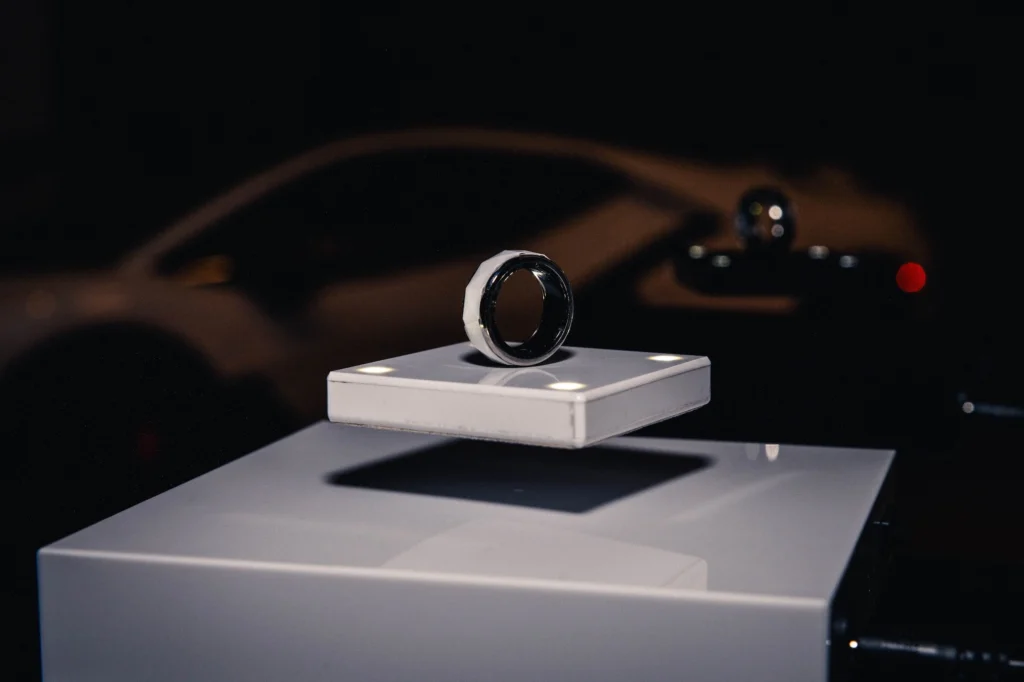
Launched earlier this year, Cudis uses blockchain technology to give users “complete ownership” of their health data
College athletes are getting in on the popular worlds of wearable technology, artificial intelligence and crypto.
Cudis, makers of an AI-powered smart ring that allows users to control their own health data and earn rewards for physical activity, has signed a one-year partnership with UCLA Athletics.
With the partnership, Cudis will get its rings into the hands of UCLA athletes and other students through campaigns including in-game promotions. Cudis will also pursue name, image and likeness (NIL) deals with UCLA athletes in sports including football, women’s gymnastics, and men’s and women’s basketball, tennis and golf.
“This collaboration holds special meaning for us as we give back to the community that helped launch our vision,” said Edison Chen, the CEO of Cudis and a UCLA graduate. “By empowering UCLA’s student-athletes with our innovative tech, we’re not just improving their performance and health, we’re introducing them to the transformative power of blockchain and crypto, rewarding healthy habits along the way.”
Launched earlier this year, Cudis rings are built on the Solana blockchain platform and are powered by AI and Web 3 tech. Similar to popular smart rings from Oura and Samsung, Cudis rings track health metrics such as heart rate, sleep, stress and calories burned. Cudis also offers an “AI Coach” feature that provides personalized health insights.
The company has sold over 10,000 units since its rings first went on sale in April, and its online community has around 100,000 members. In September, Cudis raised $5 million in a seed funding round led by Draper Associates.

Can the Blockchain Revolutionize Wearables?
Cudis’ partnership with UCLA comes as demand grows for fitness and wellness wearables, especially among young consumers. The company cited data that 35% of Gen Z consumers use wearables daily to track their health.
Among wearables, the smart ring market in particular is heating up, with market leader Oura just raising $200 million at a $5.2 billion valuation and tech giant Samsung recently launching the Galaxy Smart Smart Ring.
According to Chen, two things separate Cudis from brands like Oura and Samsung: a reward system that encourages physical activity and the blockchain, which allows Cudis to safeguard its users’ health data.
On the rewards front, Cudis users can earn points for engaging in healthy habits and actions, which are tracked by the ring and redeemable for exclusive rewards, including cryptocurrency airdrops.
Cudis also uses cryptographic signatures, IPFS storage and blockchain verification to safeguard users’ health data. The company says this gives users “complete ownership” of their data.
Data as Currency
Chen argues that Cudis users benefit from a higher level of data privacy than they’d get with wearables like Oura, Whoop or the Apple Watch (these brands have data-privacy policies, although they don’t use blockchain verification).
“Once you put the data on the chain, your data becomes your asset,” Chen told ATN. “This is the first time that users can actually own their health data as an asset. Whoever wants to use your data needs your approval – even us.”
In time, Chen says Cudis users will be able to monetize their own health data, including potentially selling their data to companies who may want to purchase it for research or marketing purposes.
“Our data can actually be worth up to $5,000 every year,” Chen believes.
Big Ambitions
Earlier this month, Cudis launched its second generation smart ring model, the Cudis 002 ($349), which offers up to 10 days of battery life, five meters of Bluetooth connectivity and is waterproof up to a depth of 50 meters.
Cudis aims to sell one million smart rings and grow its online community to at least 5 million members in the years ahead, Chen told ATN.

However, he’s quick to point out that the brand’s long-term mission goes beyond sales targets.
“We want people to realize how important and how valuable their data is,” Chen said. “We want people to know your wellness data is an asset just like your house. If you can rent your house to get paid, you can do the same thing with your data.”
